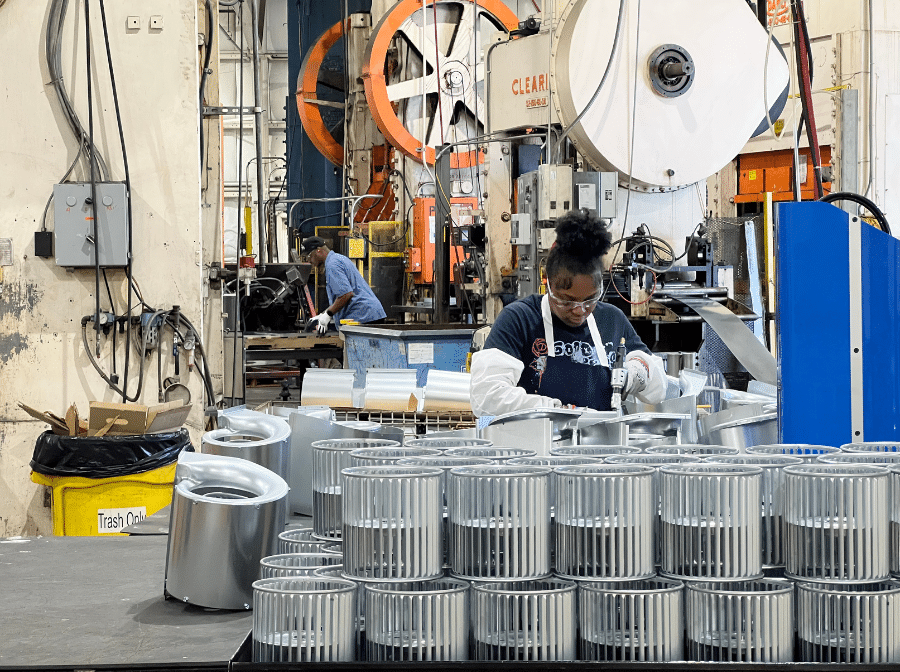
When it comes to manufacturing today, precision is key. And one technology that has revolutionized the world of manufacturing is Computer Numerical Control (CNC) machining. CNC machining involves the use of computer-controlled machinery to create intricate and precise parts and products. This technology has transformed the manufacturing industry, allowing for faster production times, improved efficiency, and unmatched accuracy. In this article, we will explore the art of precision in CNC machining and how it has paved the way for groundbreaking advancements in various industries.
One of the key advantages of CNC machining is its ability to produce highly accurate and consistent parts. Unlike traditional machining methods, which rely on manual operation, CNC machines are programmed with precise instructions that dictate the movement of the cutting tools. This level of automation ensures that each part is produced with the exact same specifications, resulting in minimal errors and waste. The precision of CNC machining is especially important in industries such as aerospace, medical, and automotive, where even the slightest deviation can have significant consequences.
Another benefit of CNC machining is its versatility. These machines can be used to create a wide range of parts and products, from simple components to complex geometries. With the right programming and tooling, CNC machines can produce parts with intricate details and tight tolerances that would be nearly impossible to achieve with manual machining. This flexibility allows manufacturers to take on a variety of projects and meet the demands of their customers with ease.
Moreover, CNC machining offers unmatched efficiency and productivity. Once a CNC machine is programmed, it can run continuously without the need for constant supervision. This means that manufacturers can produce parts around the clock, significantly reducing lead times and increasing overall output. Additionally, CNC machines can perform multiple operations in a single setup, further streamlining the manufacturing process and minimizing downtime. This level of efficiency not only saves time and labor costs but also allows for quick turnaround times, making CNC machining an ideal choice for both prototyping and mass production.
In addition to its precision and efficiency, CNC machining also enables manufacturers to push the boundaries of design and innovation. The use of CAD/CAM software, which is often integrated with CNC machines, allows engineers and designers to create complex 3D models and simulate machining operations before production. This virtual prototyping capability not only helps in identifying potential issues early on but also opens up a world of possibilities for creative and unique designs. With CNC machining, manufacturers can bring their ideas to life with unparalleled precision and accuracy, leading to groundbreaking advancements in various industries.
Despite its numerous advantages, CNC machining does require specialized skills and expertise to operate effectively. Programming CNC machines requires a deep understanding of machining principles, toolpath generation, and G-code programming. Additionally, operators must have a keen eye for detail and a thorough knowledge of material properties to ensure that the finished parts meet the desired specifications. Training and experience are essential for mastering the art of precision in CNC machining and maximizing the potential of this technology.
As technology continues to evolve, so does the world of CNC machining. New advancements in CNC technology, such as robotics, automation, and artificial intelligence, are pushing the boundaries of what is possible with machining. These innovations are enabling manufacturers to further increase efficiency, accuracy, and productivity, paving the way for the next generation of precision manufacturing.
In conclusion, the art of precision in CNC machining is a testament to the ingenuity and innovation of the manufacturing industry. With its unmatched accuracy, versatility, efficiency, and creative potential, CNC machining has become a cornerstone of modern manufacturing. As manufacturers continue to harness the power of this technology and push the boundaries of what is possible, the future of CNC machining looks brighter than ever.